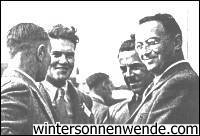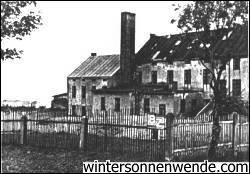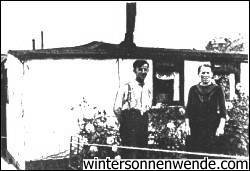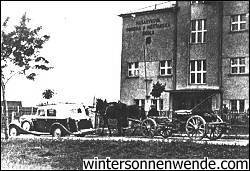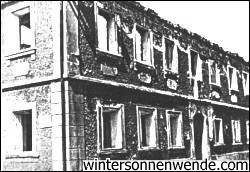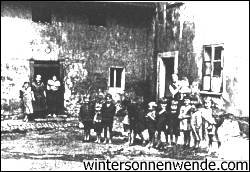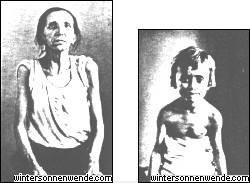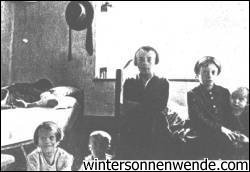 |
 George Henry Lane-Fox Pitt-Rivers Under the Czech Terror in Bohemia: Arrest of English Investigators by the Czech Police Notwithstanding all the arguments and propaganda in favour of Czech domination over the Germans, Slovaks, Magyars, Ukrainians, and Poles in the Republic, one thing is certain, the cultural heritage of the Czechs is German. Bohemia and what is today the greater part of Czecho-Slovakia looks back upon two thousand years of German settlement. Right at the beginning of the Christian era a vast German Empire had been established there, and the annals of Roman history tell of battles against the Germans and describe their manners and customs. Charles IV, King of Bohemia and German Emperor, founded the famous German University of Prague in 1348, the oldest university in Central Europe, which the Czechs have consistently tried to suppress and destroy since their coming to power by the nomination of Government supporters and discrimination against its German professors and men of science. In 1934 the German students successfully prevented the Czechs from forcibly removing the ancient university regalia. Written Czech, as a language distinguishable from the ancient dialect of the Slovaks (Slovénsky), is barely one hundred years old and Czech schooling was first inaugurated by the German administrator of Austria. Masaryk himself has acknowledged that the Germans were the cultural instructors of the Slavs and that it is only by way of German channels that the benefits of Western civilisation have been transmitted to the Czechs. John Hus, the famous leader who raised the standard of revolt against the Holy Roman Empire, is one of the few Czech heroes in early history to whom they can lay claim, and the Hussites conducted their rebel propaganda mainly in the German language and in Latin. Hus received his education in the German University of Prague and adopted Wycliff's theology. Professor Antonin Bohác, the official Czech statistician, in his reply to my report on demographic conditions in Bohemia, writes ironically, July, 1937, that he has no need to argue with me the case for the cultural achievements of the Czechs and Germans of Bohemia. If he had omitted the word "Czechs and", he would be perfectly right. He says:
"Besides it is not true that the science of population is pursued almost exclusively in the (German) University of Prague by Germans, nor that German men of science are excluded from the Czech National Committee.... Since 1929 I have given each term one or two courses in demographic science in the Czech University of Prague.... In the German University there is no one who has obtained the necessary qualifications to teach the demographic sciences and neither is there any course in demography. The truth is, consequently, quite other than the contention of Captain Pitt-Rivers." (Translated from the French.)25 Masaryk, the champion of the Czech cause, I might here observe, although the point is a minor one, was himself a Slovak, not a Czech, and yet, as such, was an opponent of Slovak national autonomy. At the end of this year, 1938, there appeared from the press yet another volume by Mr. Lloyd George, entitled The Truth About the Peace Treaties, Vol. I., published by Victor Gollancz, Ltd. In his introduction, Mr. Lloyd George quotes for the first time long extracts from a Foreign Office Memorandum composed in the autumn of 1916, which he describes, in his own words and in his own style, as follows:
The origin of the slogan "self-determination" has been discussed; it came from a very different source than the British Foreign Office, whilst the declaration in favour of a "League of Nations" also originated long before the war and was early associated with the activities of Benesh and Masaryk in Paris and Pittsburgh for the purpose of founding a "Czech State." (See ante, p. 37 [of original printed text]). Nor will those familiar with the pre-war activities of the internationalist revolutionary movement find anything very original in this Memorandum bearing upon its proposals and aims regarding the "breaking-up" of the Austro-Hungarian and German Empires. There is no information in it of any value touching the racial composition or the cultural affinities of the various nationalities of Central Europe. In view of its alleged importance, it is perhaps a pity that the anonymity of the authors of this document has been preserved. All Mr. Lloyd George tells us with regard to its authorship is:
There appears, however, in Appendix III of this quoted Memorandum a reference to the low cultural development of the Czechs, which may serve as an additional comment, coming as it does from a presumably highly-sympathetic source, to M. Bohác's claims about Czech contributions to Bohemian culture:
The reasons given for the Czechs being in favour of their incorporation in the kingdom of Poland is interesting, and is refreshingly candid in comparison with recent pro-Czech propaganda:
It would appear, therefore, that any solution that did not involve ceding German-speaking territories to Germany or Austria, or involve acknowledging the age-long cultural heritage of the Germans in Bohemia, was, as far back as 1916, thought by our official pundits to be "impressive, well-informed, and far-seeing." And Mr. Lloyd George still thinks this impressive and well-informed at the end of 1938! Dr. Bohác maintains in his reply to my report that there are no German men of science in the German University of Prague qualified to teach the sciences of population. On the other hand I had received, under date July 20th, 1937, as a result of my request, from the Dean of the Faculty of Philosophy in the German University of Prague the names of fifteen German professors and members of the German Association of Science and Art whose qualifications and faculties cover the range of population sciences in Bohemia, relating especially to ethnography, biology, history, geography, sociology, and German-Bohemian folk studies (deutsche Volkskunde Böhmens), who were teaching these subjects in the University, none of whom were permitted to adhere to the Czecho-Slovak National Committee for the Study of Population. (Text of letter in German.) In the name of history and the truth it should hardly be necessary to protest against a claim, so easily refuted, that the Bohemian nation ever owed its culture to the Czechs. It was largely owing to the fact that the German scientists in the German University of Prague were not allowed to participate in the activities of the Czecho-Slovak National Committee and were not allowed to attend Congresses of the International Population Union, that I was led to visit Czecho-Slovakia in September, 1916, in order to make my own investigations and discover the truth. The outcome of my visit was the collection of facts, figures, and photographs, relating especially to the Sudeten German districts, which were confiscated in Karlsbad. It also led to my arrest by the Czech police on a trumped-up charge of espionage, and a year later to the suppression of my reports on the subject at the International Population Congress in Paris in July, 1937. All these facts have been deliberately withheld from and by the British Press. I now reveal those facts! With my private secretary I crossed the Czecho-Slovak frontier by car into Bohemia at Fürth-im-Wald, en route for Pilsen and Prague, on August 31st, 1936. A few days later I travelled from Prague to enter the Sudeten area around Karlsbad. On Sunday, September 6th, Conrad Henlein, leader of the Sudeten German Party, the largest single political party in Czecho-Slovakia, whose membership includes 95 per cent of the Sudeten
In Neusattl, in sharp contrast to the shacks and hovels we were visiting, stood an imposing solid concrete building. This was a new Czech school in a district where the population was almost exclusively German. (See Photograph.) The headmaster informed me that it was strictly forbidden for foreigners to visit their school or see the children. During the recent trouble a case was reported of a small German boy being
House after house, hovel after hovel personally visited in the district showed the same conditions. Few of the families visited had ever tasted meat for years and even bread was rare. Almost the exclusive diet of hundreds of these people consisted of potato and sour cabbage, washed down with the poison called corn coffee. Families of nine and ten were frequently living in one tiny room in a state of
The Government statistical bureau in Prague has stated that between 1920 and 1930 more than 20,000 Germans committed suicide. In spite of these depressing and unparalleled conditions many of the rooms were swept and clean, and some attempt was made to keep them orderly and bright. In the centre of this village of poverty stood a new cinema-theatre, built by the municipality for the Czech officials and their families. In the Sudeten area, where the population is exclusively German, small Czech colonies have been formed, land being taken from the Germans for this purpose. All the officials in the Sudeten area, municipal officials, police, schoolmasters, stationmasters, and postmen, etc., are Czech. Even amongst the police very few can speak German. The Bürgermeisters' secretaries are appointed by the Government. In the army no German is allowed to reach the commissioned ranks, and German recruits are distributed in small batches in all the Czech regiments. In the May elections of 1935, Henlein's party secured 44 seats out of 300 in the Chamber of Deputies, and their numbers have increased since then. Hundreds of people are arrested all over the Republic on political grounds and suspicion of espionage. Many of them remain incarcerated for indefinite periods. Many die mysteriously in prison. There is ample evidence, officially suppressed and denied, of torture and the use of bastinado on political prisoners in Czech prisons. There are a number of Hungarians, Poles, Roumanians, Germans, and Slovaks who have suffered in this way. There are many who are not citizens of this democratic Republic who have suffered like treatment in Czech prisons. The number of unemployed in the country increased from 53,000 on the 1st January, 1929, to 850,000 on the 1st January, 1936. As has already been shown, by far the largest proportion of this figure is amongst the German population in Bohemia and elsewhere. This is the highest rate of unemployment in Europe in the richest district of the old Austro-Hungarian Empire.
On my return to Karlsbad from this distressed area I was arrested and taken by
the police, with my private secretary, to the police station. Passports, camera,
and films were taken from us and the car impounded. There was no regular
representative of the British Consular Service in Karlsbad. By the direct
intervention of the British Minister in Prague, Sir Joseph Addison, who sent a
member of the Legation Staff, travelling by car from Prague to Karlsbad
overnight, my release and the return of my property was effected. It would be
interesting to know why, within about three weeks of this outrage on a British
subject and a British officer, our Minister was recalled from Prague and
another British diplomat sent in his place.
|





